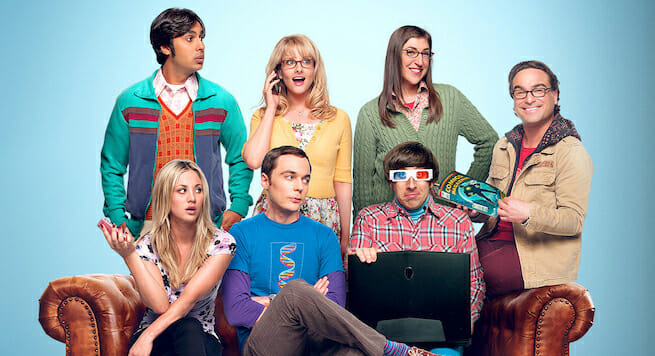A Eulogy for Big Bang Theory, a Show You’re All Going to Discover On a Streaming Service
Image courtesy of CBS
For years The Big Bang Theory has been both background noise and a dirty little secret in my life. As a culture writer and comedian, enjoying Big Bang Theory comes with the same sort of social stigma saved for adults who proudly like System of a Down. You’re simply not supposed to like it after you grow up, or learn to lie and pretend you like Rush.
The Big Bang Theory is easy to hate on paper, from the overblown laugh track to its seemingly stereotypical characters. Being birthed by Two and a Half Men mastermind Chuck Lorre didn’t help, obviously. Lorre’s previous hit was a toxic soup of misogyny lead by a nuclear Charlie Sheen. When Big Bang Theory hit four years later the association was impossible to shake.
Which is why I’m grateful for my Grandmother. Like many people who hate Big Bang Theory, I’d never actually watched the show beyond a few passing minutes. So when she and my cousins gathered around the TV to watch an episode I hemmed and hawed and sat my ass down. And then I laughed my ass off.
For all the hell comedy snobs give laugh tracks, watching the show with their live laughter gave me a deeper appreciation for canned laughs. Laugh tracks were originally introduced to create balance in live sitcom recordings. Some jokes didn’t get the desired laugh from the live audience, so laugh tracks served to “sweeten” the response. Inversely, sometimes when jokes got too big a response, the laugh track was inserted to tone them down to not interrupt a shows flow.
-

-

-

-

-

-

-

-

-

-

-

-

-

-

-

-

-

-

-

-

-

-

-

-

-

-

-

-

-

-

-

-

-

-

-

-

-

-

-

-








































